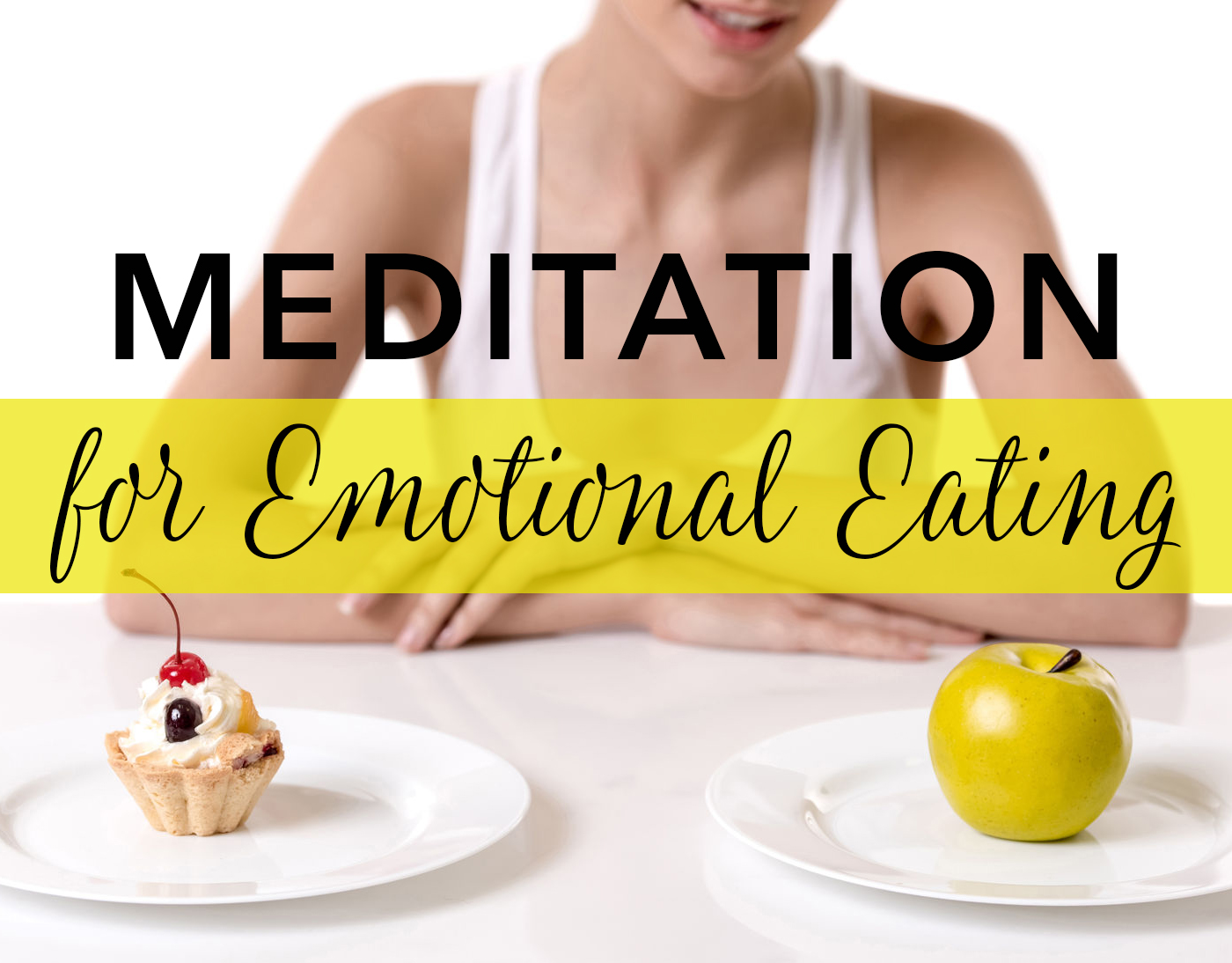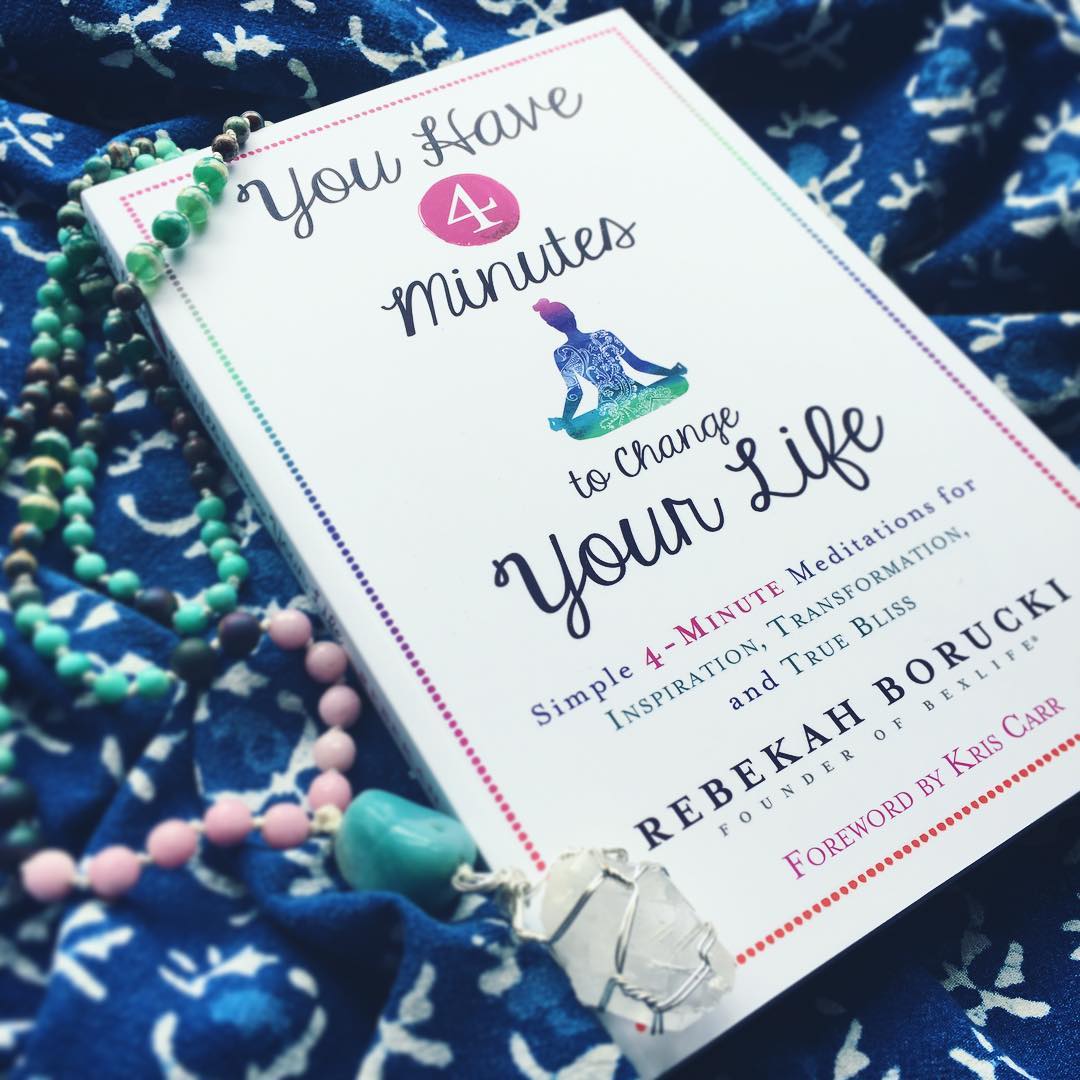
“Having the body you want starts with loving the body you have.”
Think back to the last time you had an emotional meltdown. Whether it was a fight with your spouse, a disastrous political discussion with a family member, or just a bad day at work, you were left in a state of upheaval. You might have felt sad, angry, discouraged, or a combination of negative emotions.
Now try to recall what you ate afterwards. Odds are good that it wasn’t the healthiest option. No one really reaches for a big green salad or a crunchy apple when they’re feeling down. Those moods are when you reach for the ice cream, a sleeve of cookies, or a box of donuts. It’s called emotional eating or “eating your feelings.”
Everyone has experienced emotional eating. It’s a way of seeking comfort when we don’t like the way we’re feeling. Unfortunately, it also buries those feelings so that we aren’t actually dealing with them constructively.
The biggest problem with emotional eating (besides the unhealthy factor) is that it often creates a negative loop. Here’s how it probably goes for you: You’re having a bad day and you feel really blue. You come home and open a bag of chips. Because you don’t want to sit with your feelings, you keep digging into the bag and end up eating way more than you wanted to. Then you start feeling badly about yourself due to your lack of self-control. Those bad feelings lead to more emotional eating. On and on it goes.
So let’s stop that cycle in its tracks.
Start by being kind to yourself. Don’t beat yourself up over your emotional eating. That will just trigger the whole cycle to start over again. Forgive yourself for the choice you made in an emotional low point.
At the same time, accept responsibility. Acknowledge that no one forced you to polish off half a box of Girl Scout cookies; you walked into the kitchen of your own free will and pulled those Thin Mints out of the pantry all by yourself.
Now you can take steps towards helping yourself avoid emotional eating in the future.
- Figure out what you’re really feeling and WHY you’re feeling that way. Do this with curiosity instead of judgment. Don’t tell yourself, “I shouldn’t feel so bitter about my job, some people would be grateful to do what I do, I’m so spoiled!” Instead, try saying, “Even though I’m lucky to be employed, I’m unhappy at work. I wonder why.” With some gentle investigation, maybe you’ll realize you only feel bitter because you had a stressful week. On the other hand, maybe you’ll realize it’s time to move on. Either way, you don’t need to take any immediate action – you just want to understand and accept what your emotions are telling you.
- Find a quiet spot to meditate. Sit comfortably and allow yourself to study your breath. You don’t need to try to control your breathing, simply follow the inhales and exhales. Just by observing your breath, it will likely slow down on its own.
- With your eyes closed—or open with a soft, gentle focus—start repeating the following mantras to yourself. Inhale silently, and then say your mantras on your exhale; you can say them out loud or silently in your head. “My thoughts and my feelings are valid. I give myself permission to feel whatever emotions come to me. However, I also respect and love my body. I make choices that honor me and honor my body. I eat foods that nourish me.” Repeat these mantras for several breath cycles.
- Even though the emotional eating probably did not honor your body and your intentions, repeating the mantra in the present tense sets you up for success starting right now.
- Throughout the rest of your day and going forward into tomorrow, ask yourself this question every time you stop to eat: “Does this honor me, my body, and my intentions?” If the answer is no, keep looking until the answer is a loud and solid YES.
This entire meditation comes from a place of self-love and self-examination. First you’re identifying and understanding your current mood or feelings without the harshness of judgment, then you’re showing honor and respect for yourself by being mindful about your food choices.
The tub of ice cream may taste comforting in the moment, but allowing your feelings and eating foods that nourish you will make you feel so much better in the long run. This sets the stage for weight loss (if that’s your end goal), a healthy body, and a healthy emotional core.
When you approach everything—even emotional eating—with curiosity, love, and mindfulness, making the right choices will be easy.

Excerpt from You Have 4 Minutes to Change Your Life
Can You Honor Your Body with . . . Cake?
In 2013 my mother passed away 10 days after a sudden, massive stroke, only seven months after I had lost my father. One day not long after Mom’s death, I was standing in a local deli with my 14-year-old son, ready to have a special lunch date—just the two of us.
There in the display case was a Jewish apple cake, something I had never seen in a deli in that part of South New Jersey. Since I had spent that morning and the night before thinking a lot about my mom, I smiled to myself when I saw the cake. Jewish apple cake was one of her few specialties, and she made it often. I took that cake as a sign, maybe even a “hello” from her.
After ordering our sandwiches and potato salad, I gave in to the urging of the Universe and my longing for a taste of my mom’s cake. I ordered a slice for each of us and got more excited for it with every bite of my sandwich. I couldn’t wait to taste it again. It had been so long.
There’s generally not much room for cake or refined sugars of any kind in my diet, but eating that huge piece of cake was in total alignment with my purpose. That cake wasn’t meant to cover a pain or fill a void. It wasn’t a decadent treat or a cheat on my otherwise pristine diet. That cake was a warm hug. It was a reminder that life’s beauty (and my mom) is everywhere. It surprised me in the deli case much like my mother would stop by unannounced with her own cake, still warm from the oven and sprinkled with powdered sugar, ready for us to devour in one sitting.
Sometimes when we ask, “Does this serve and honor me?” and we’re asking from a place of genuine love and respect for our purpose, the answer surprises us. More often than not, a yoga class or a giant kale salad will get a resounding YES! Other times we’ll get a yes to a piece of cake or playing hooky or watching a marathon of our favorite reality show instead of going to the gym.
Only you can know when you’ve been truthful with yourself or when you’ve fooled yourself. If you do fool yourself or find yourself bingeing, remember to look at your behavior with curiosity instead of judgment. “I wonder why I felt the need to binge. Was I stressed out? Was I afraid about something? Did I feel like I’d failed and needed to be punished? Was I just sad?” Whatever the reason, just make note of it for future reference. Allow yourself to say, “That’s interesting,” as you would about a loved one.
If you want to find out more about getting started with a meditation practice, see my book, You Have 4 Minutes To Change Your Life. I will guide you through 27 different meditation practices and share personal stories that demonstrate how meditation has helped me overcome various challenges. I also answer commonly asked questions like “Do my eyes have to stay closed?” and “What do I do if my body starts to hurt?”; as well as technical information about props, postures, and mantras.
I also have free gifts for you! I’m giving away The 21-Day Soul Cleanse ($49 value) and Turned On: Find Your Light ($99 value) a brand new interview series and mini-workshop, to anyone who orders the book here.

Rebekah “Bex” Borucki, founder of BexLife.com and the Blissed In® wellness movement, is a mother-of-five, TV host, meditation guide, author, speaker, birth doula, fitness and yoga instructor, and popular social media personality. Her first book, You Have 4 Minutes to Change Your Life (Hay House 2017), is available now, wherever books are sold.
DISCLAIMER: This post/video is designed for educational and/or informational purposes only and should not be used in any other manner. This information is not intended to substitute informed medical advice. You should not use this information to diagnose or treat a health problem or disease without consulting with a qualified health care provider. A consultation with your health care professional is the proper method to address your health concerns. You are encouraged to consult your health care provider with any questions or concerns you may have regarding your condition.

